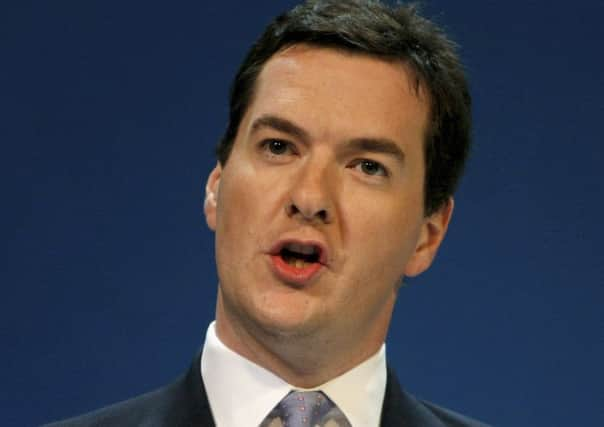No Lloyds share sale to public before election


The Treasury, which still owns 25 per cent of the bank, is thought to have scrapped a public sale before May due to stock market volatility, geopolitical uncertainty and the time it would take to launch the public offering. The Chancellor said in his Autumn Statement last year he wanted the taxpayer to have the opportunity to own shares in the bank.
The Treasury was left with a stake in Lloyds following its £20 billion rescue during the financial crisis, after it swallowed up troubled Halifax Bank of Scotland.
Advertisement
Hide AdAdvertisement
Hide AdTaxpayers originally owned 43 per cent of Lloyds, but this was cut following share sales to institutions to 24.9 per cent earlier this year. The Treasury last raised £4.2bn in March by selling shares at 75.5p to City investors.
But since June, Lloyds share price has fallen 6 per cent as the stock market has become more volatile and geopolitical conditions have grown more uncertain. In total, the Treasury has raised £7.4bn from two sales of shares to investors.
The Scottish independence referendum in September, the presentation of Lloyds full-year results in February and the Budget in March further narrow the window of when the marketing for a large-scale sale to the public could go ahead.
Lloyds has also said it will apply to the Bank of England’s stability watchdog, the Prudential Regulation Authority, to begin to pay dividends in the second half of this year after more than six years.
Sources close to the sale admit that any marketing of shares to the public would be more attractive once the bank has been cleared to make shareholder payouts.